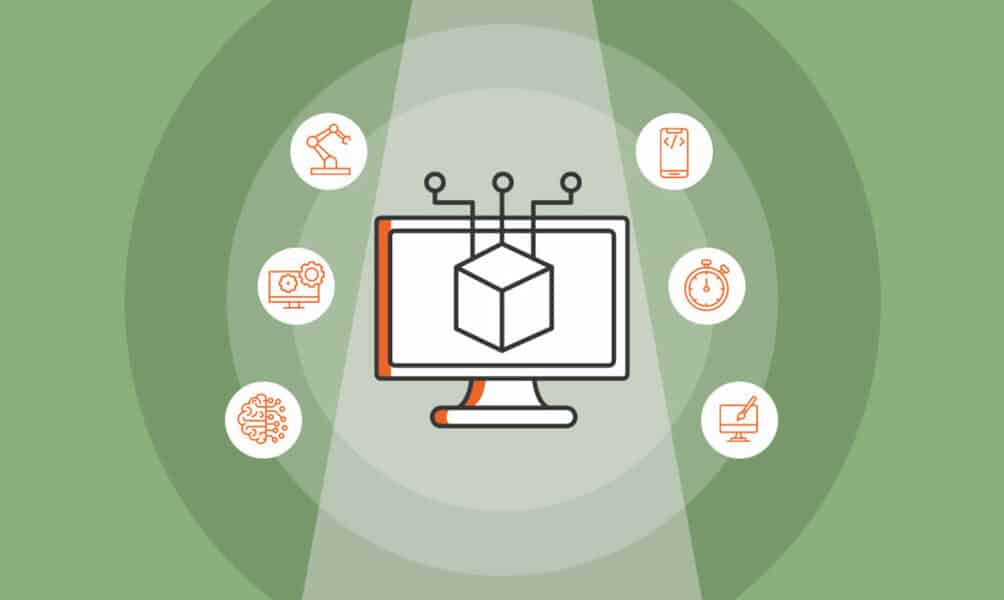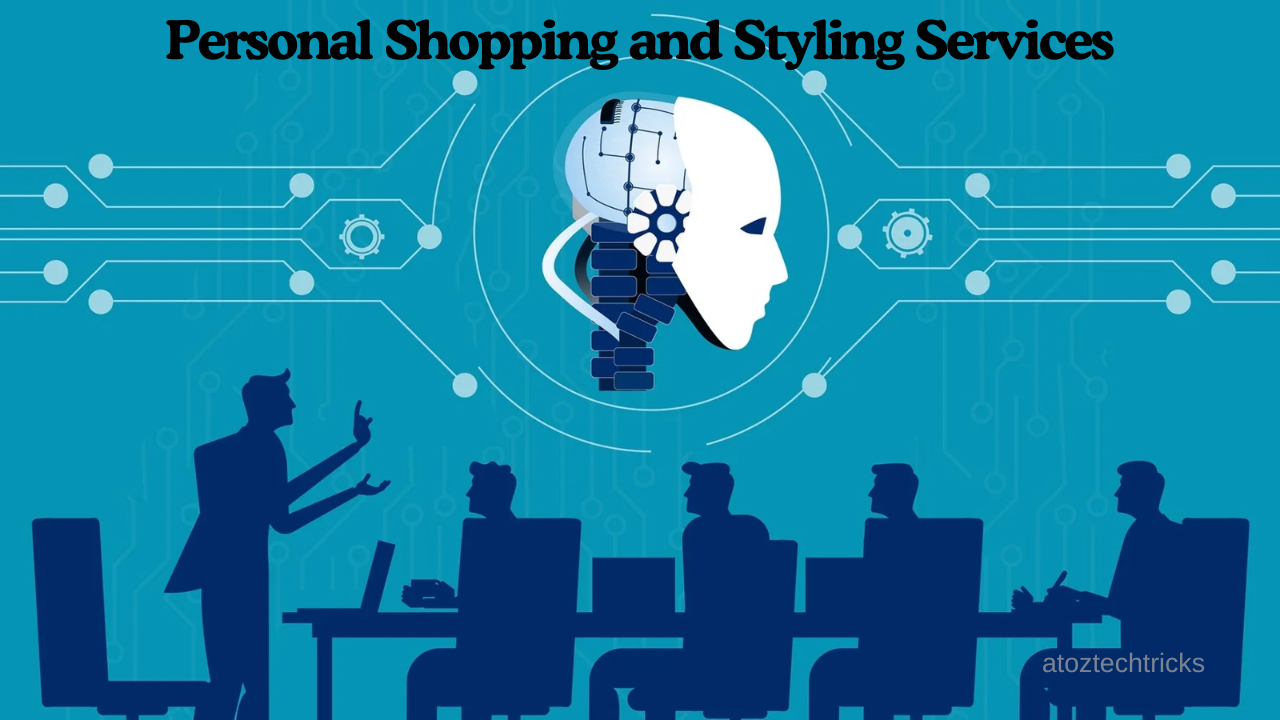Technology-Based Business Ideas: Unleashing Innovation for the Future
In today’s fast-paced digital world, technology continues to redefine the landscape of entrepreneurship. Whether you’re an aspiring entrepreneur or a seasoned business owner, leveraging technology to build a business can lead to significant opportunities and long-term success. From artificial intelligence to blockchain, tech-based business ideas offer diverse and innovative avenues to explore. This article delves into several promising technology-driven business ideas, analyzing their potential, challenges, and how they can be effectively executed.
1. Artificial Intelligence (AI) Consulting Firm
Artificial Intelligence (AI) is transforming industries by providing businesses with the tools to automate processes, enhance customer experience, and make data-driven decisions. An AI consulting firm specializes in helping companies integrate AI into their operations.
Business Potential:
- AI is expected to contribute $15.7 trillion to the global economy by 2030, highlighting its significant growth potential.
- Companies across various sectors, including healthcare, finance, and retail, are increasingly adopting AI, creating a substantial market for AI consulting services.
Challenges:
- Keeping up with the rapid advancements in AI technology.
- Building trust with clients who may be sceptical about the effectiveness of AI.
Execution Strategy:
- Build a team of AI experts with diverse industry knowledge.
- Offer customized AI solutions tailored to the specific needs of different industries.
- Focus on educating clients about the benefits of AI and how it can be implemented effectively.
Home-Based Daycare or Babysitting Services: A Comprehensive Guide
2. E-Commerce Platform for Niche Markets
E-commerce has revolutionized the retail industry, and there is still untapped potential in niche markets. Creating an e-commerce platform that caters to specific interests or demographics can lead to a successful business.
Business Potential:
- The global e-commerce market is projected to reach $6.3 trillion by 2024.
- Niche markets, such as eco-friendly products, luxury goods, or hobby-specific items, are growing rapidly as consumers seek specialized products.
Challenges:
- Competition from larger e-commerce platforms.
- Building a loyal customer base in a niche market.
Execution Strategy:
- Conduct thorough market research to identify a profitable niche with high demand.
- Focus on offering unique products that are not easily found on mainstream e-commerce sites.
- Utilize targeted marketing strategies, such as influencer partnerships and social media advertising, to reach your niche audience.

3. Cybersecurity Solutions Provider
As businesses increasingly rely on digital platforms, the need for robust cybersecurity measures has never been greater. A cybersecurity solutions provider offers services such as threat detection, vulnerability assessments, and incident response to protect businesses from cyber threats.
Business Potential:
- The global cybersecurity market is expected to grow from $217.9 billion in 2021 to $345.4 billion by 2026.
- With cyber threats becoming more sophisticated, companies are willing to invest in comprehensive cybersecurity solutions.
Challenges:
- Staying ahead of evolving cyber threats.
- Building credibility and trust with clients, especially for a new business.
Execution Strategy:
- Develop a range of cybersecurity services that cater to businesses of all sizes.
- Focus on continuous learning and adapting to new threats and technologies.
- Establish partnerships with technology vendors to offer integrated solutions.
4. Virtual Reality (VR) Experience Center
Virtual Reality (VR) technology has moved beyond gaming and entertainment, finding applications in education, healthcare, real estate, and more. A VR experience centre offers immersive experiences for consumers, ranging from virtual travel to educational simulations.
Business Potential:
- The VR market is expected to reach $57.55 billion by 2027.
- The demand for unique and immersive experiences is on the rise, particularly in the entertainment and education sectors.
Challenges:
- High initial investment in VR equipment and technology.
- Ensuring a steady flow of customers to sustain the business.
Execution Strategy:
- Identify a prime location with high foot traffic, such as shopping malls or tourist areas.
- Offer a variety of VR experiences, including gaming, virtual tours, and educational programs.
- Collaborate with educational institutions and corporate clients to offer specialized VR training programs.
5. Blockchain Development Services

Blockchain technology is best known as the foundation of cryptocurrencies, but its applications extend far beyond digital currency. Blockchain development services focus on creating decentralized applications (dApps), smart contracts, and secure data management systems for businesses.
Business Potential:
- The global blockchain market is projected to grow at a compound annual growth rate (CAGR) of 67.3% from 2021 to 2028.
- Industries such as finance, supply chain management, and healthcare are increasingly adopting blockchain for its transparency, security, and efficiency.
Challenges:
- The complexity of blockchain technology and the need for specialized knowledge.
- Overcoming scepticism and misconceptions about blockchain.
Execution Strategy:
- Build a team of experienced blockchain developers and engineers.
- Offer end-to-end blockchain solutions, from consulting to development and implementation.
- Focus on educating potential clients about the benefits of blockchain and how it can solve their specific business challenges.
6. EdTech Platform for Personalized Learning
The education technology (EdTech) sector has witnessed significant growth, particularly with the rise of online learning. An EdTech platform that offers personalized learning experiences using AI and data analytics can cater to the diverse needs of students.
Business Potential:
- The global EdTech market is expected to reach $404 billion by 2025.
- The demand for flexible, personalized learning solutions is increasing as more people seek to upskill and reskill in a rapidly changing job market.
Challenges:
- Developing content and technology that effectively personalizes learning for each user.
- Competing with established online learning platforms.
Execution Strategy:
- Collaborate with educators and subject matter experts to create high-quality content.
- Use AI to analyze user data and provide personalized learning paths for each student.
- Focus on creating an intuitive and engaging user experience to keep learners motivated.
Personal Shopping and Styling Services: A Comprehensive Guide
7. SaaS (Software as a Service) for Remote Work Solutions
The shift to remote work has accelerated due to the COVID-19 pandemic, creating a need for tools that facilitate remote collaboration, communication, and productivity. A SaaS platform that offers remote work solutions, such as project management, virtual meeting software, and cloud storage, can tap into this growing market.
Business Potential:
- The global SaaS market is expected to reach $307.3 billion by 2026.
- The remote work trend is likely to continue, with many companies adopting hybrid work models.
Challenges:
- Ensuring the platform is secure, scalable, and user-friendly.
- Differentiating your SaaS product in a crowded market.
Execution Strategy:
- Focus on providing a seamless and integrated experience for remote teams, with tools that work together effectively.
- Offer flexible pricing plans to cater to businesses of all sizes, from startups to large enterprises.
- Invest in continuous development to add new features and improve user experience based on customer feedback.
8. HealthTech Startup for Telemedicine

Telemedicine has become increasingly popular as it allows patients to consult with healthcare providers remotely. A HealthTech startup that offers telemedicine services, including virtual consultations, remote monitoring, and online prescriptions, can meet the growing demand for convenient healthcare solutions.
Business Potential:
- The global telemedicine market is expected to reach $298.9 billion by 2028.
- Telemedicine is becoming a standard practice in healthcare, particularly in rural areas and during emergencies.
Challenges:
- Navigating the complex regulatory environment of the healthcare industry.
- Ensuring the privacy and security of patient data.
Execution Strategy:
- Partner with healthcare providers and insurance companies to offer a comprehensive telemedicine service.
- Focus on developing a user-friendly platform that is accessible to patients of all ages and tech literacy levels.
- Invest in robust cybersecurity measures to protect sensitive health information.
9. Renewable Energy Solutions Provider
As the world moves towards sustainability, renewable energy solutions are gaining traction. A business that provides solar panels, wind turbines, and energy storage systems for homes and businesses can contribute to a greener future while capitalizing on a growing market.
Business Potential:
- The global renewable energy market is projected to reach $1.9 trillion by 2030.
- Government incentives and consumer demand for sustainable energy are driving the growth of the renewable energy sector.
Challenges:
- High initial costs for renewable energy equipment.
- Navigating regulatory requirements and obtaining necessary permits.
Execution Strategy:
- Offer turnkey solutions that include installation, maintenance, and financing options.
- Educate consumers and businesses about the long-term cost savings and environmental benefits of renewable energy.
- Explore partnerships with government agencies and environmental organizations to promote your services.
10. Smart Home Technology Integration
Smart home technology is becoming increasingly popular as consumers seek to enhance convenience, security, and energy efficiency in their homes. A business that specializes in integrating smart home devices, such as security systems, lighting, and thermostats, can tap into this growing market.
Business Potential:
- The global smart home market is expected to reach $313.95 billion by 2026.
- The increasing adoption of IoT devices is driving the demand for smart home solutions.
Challenges:
- Staying updated with the latest smart home technologies and trends.
- Ensuring compatibility between different devices and systems.
Execution Strategy:
- Offer customized smart home solutions tailored to the specific needs and preferences of each customer.
- Provide installation and ongoing support services to ensure a seamless user experience.
- Focus on building strong relationships with smart home device manufacturers to offer the latest technology to your customers.
Event Planning and Decorating Services: Creating Unforgettable Experiences
11. AI-Powered Content Creation Tools
Content creation is a critical component of digital marketing, and businesses are always looking for ways to produce high-quality content efficiently. AI-powered content creation tools that generate blog posts, social media content, and even videos can help businesses save time and resources.
Business Potential:
- The global content marketing industry is projected to reach $412.88 billion by 2025.
- AI-driven content creation tools are gaining popularity as businesses seek to scale their content production efforts.
Challenges:
- Ensuring the content generated by AI is of high quality and relevant to the target audience.
- Addressing concerns about the authenticity and originality of AI-generated content.
Execution Strategy:
- Develop AI algorithms that can produce content in various formats and styles, catering to different industries and audiences.
- Offer a range of customization options, allowing users to tweak the AI-generated content to better fit their brand voice.
- Focus on continuous improvement of the AI models to enhance content quality and relevance.
12. Online Marketplace for Freelancers and Gig Workers
The gig economy is on the rise, with more people opting for freelance work and short-term contracts over traditional employment. An online marketplace that connects freelancers and gig workers with clients can provide a valuable platform for both parties.
Business Potential:
- The gig economy is projected to contribute $455.2 billion to the global economy by 2023.
- The demand for skilled freelancers in areas such as graphic design, writing, and programming is growing.
Challenges:
- Building a strong user base of both freelancers and clients.
- Ensuring fair pricing and preventing exploitation within the marketplace.
Execution Strategy:
- Focus on creating a user-friendly platform with robust features, such as secure payment processing, job matching algorithms, and rating systems.
- Offer specialized categories for different types of freelance work, making it easier for clients to find the right talent.
- Implement measures to ensure transparency and fairness, such as dispute resolution services and clear pricing guidelines.
13. AI-Driven Data Analytics Service

Data is the new oil, and businesses are increasingly relying on data analytics to make informed decisions. An AI-driven data analytics service that helps companies analyze large datasets and extract actionable insights can be a valuable asset.
Business Potential:
- The global big data analytics market is expected to reach $103 billion by 2027.
- AI-driven analytics can provide businesses with faster and more accurate insights, giving them a competitive edge.
Challenges:
- Managing and processing large volumes of data efficiently.
- Ensuring data privacy and compliance with regulations.
Execution Strategy:
- Develop AI algorithms that can handle large datasets and provide real-time analytics.
- Offer customizable dashboards and reports that cater to the specific needs of different industries.
- Focus on data security and compliance, ensuring that your service meets all regulatory requirements.
14. 3D Printing Services for Custom Products
3D printing technology has advanced rapidly, making it possible to create custom products on demand. A business that offers 3D printing services for custom products, such as jewellery, home decor, or industrial parts, can cater to both individual consumers and businesses.
Business Potential:
- The global 3D printing market is expected to reach $62.79 billion by 2028.
- The demand for personalized and custom-made products is growing, especially in sectors like fashion and manufacturing.
Challenges:
- High initial investment in 3D printing equipment and materials.
- Ensuring the quality and durability of 3D printed products.
Execution Strategy:
- Offer a range of 3D printing materials and technologies to cater to different customer needs.
- Focus on providing high-quality and durable products, with rigorous quality control processes.
- Collaborate with designers and engineers to offer custom design services alongside 3D printing.
15. IoT Solutions for Smart Cities
Smart cities are an emerging trend, with governments and municipalities looking to improve urban living through technology. An IoT solutions provider that offers smart city applications, such as traffic management, energy efficiency, and public safety, can play a key role in this transformation.
Business Potential:
- The global smart city market is expected to reach $2.5 trillion by 2025.
- The increasing urbanization and demand for sustainable city solutions are driving the growth of smart cities.
Challenges:
- Navigating complex regulatory environments and securing government contracts.
- Ensuring the interoperability and scalability of IoT solutions.
Execution Strategy:
- Develop IoT solutions that address specific challenges faced by cities, such as traffic congestion or energy consumption.
- Focus on building strong relationships with government agencies and city planners.
- Offer scalable solutions that can be easily adapted to different cities and regions.
16. Tech-Enabled Fitness and Wellness Platform
The fitness and wellness industry has embraced technology, with a growing number of consumers using apps, wearables, and online platforms to manage their health. A tech-enabled fitness and wellness platform that offers personalized workout plans, nutrition advice, and mental health support can tap into this trend.
Business Potential:
- The global wellness market is projected to reach $7 trillion by 2025.
- The demand for personalized and tech-driven wellness solutions is increasing, particularly among millennials and Gen Z.
Challenges:
- Competing with established fitness and wellness apps.
- Ensuring user engagement and retention in a crowded market.
Execution Strategy:
- Use AI and data analytics to offer personalized fitness and wellness plans that adapt to the user’s progress and goals.
- Integrate with wearable devices and other health tech to provide a comprehensive wellness experience.
- Focus on building a community around the platform, with features such as social sharing, challenges, and virtual classes.
17. AR-Powered Retail Experience
Augmented Reality (AR) is transforming the retail industry by providing immersive shopping experiences. An AR-powered retail platform that allows customers to virtually try on products, visualize furniture in their homes, or explore interactive product displays can enhance the shopping experience.
Business Potential:
- The global AR market is expected to reach $340.16 billion by 2028.
- Retailers are increasingly adopting AR to differentiate themselves and engage customers in new ways.
Challenges:
- High development costs for AR technology and content.
- Ensuring a seamless and realistic AR experience for users.
Execution Strategy:
- Develop AR experiences that are accessible via smartphones and other common devices, lowering the barrier to entry for customers.
- Collaborate with retailers and brands to create customized AR content that aligns with their marketing strategies.
- Continuously innovate and improve the AR experience based on customer feedback and technological advancements.
18. Tech-Driven Environmental Monitoring and Management
Environmental sustainability is a growing concern, and technology can play a crucial role in monitoring and managing environmental impact. A business that offers tech-driven environmental monitoring solutions, such as air and water quality sensors, waste management systems, and energy efficiency tools, can contribute to a greener future.
Business Potential:
- The global environmental monitoring market is expected to reach $25.98 billion by 2028.
- Governments, corporations, and consumers are increasingly prioritizing environmental sustainability, creating demand for monitoring and management solutions.
Challenges:
- Navigating regulatory requirements and obtaining necessary certifications.
- Ensuring the accuracy and reliability of environmental monitoring data.
Execution Strategy:
- Develop a range of environmental monitoring solutions that cater to different industries and applications.
- Focus on providing accurate and real-time data that can be used to make informed decisions.
- Offer consulting services to help businesses and governments implement effective environmental management strategies.
19. AI-Powered Recruitment Platform
Recruitment is a critical function for businesses, and AI can streamline the process by matching candidates with job opportunities more effectively. An AI-powered recruitment platform that uses machine learning algorithms to analyze resumes, assess candidates, and predict job fit can revolutionize the hiring process.
Business Potential:
- The global recruitment market is projected to reach $449 billion by 2026.
- AI-driven recruitment solutions are gaining popularity as businesses seek to improve hiring efficiency and reduce bias.
Challenges:
- Ensuring the accuracy and fairness of AI-driven recruitment decisions.
- Addressing concerns about privacy and data security in the recruitment process.
Execution Strategy:
- Develop AI algorithms that are trained on diverse datasets to minimize bias and improve accuracy.
- Offer a user-friendly platform that integrates with existing HR systems and tools.
- Focus on transparency and explainability, providing insights into how AI-driven decisions are made.
20. Digital Health and Wellness Subscription Box
Subscription boxes have become a popular way for consumers to discover new products and services, and this model can be applied to health and wellness. A digital health and wellness subscription box that combines physical products with online resources, such as workout plans, meditation guides, and nutrition advice, can provide a holistic wellness experience.
Business Potential:
- The subscription box market is expected to reach $15 billion by 2027.
- The demand for convenient and personalized health and wellness solutions is growing, particularly among busy professionals and health-conscious consumers.
Challenges:
- Ensuring consistent quality and value for subscribers.
- Managing logistics and supply chain challenges for the physical products.
Execution Strategy:
- Curate a selection of high-quality health and wellness products, such as supplements, fitness gear, and skincare, for each subscription box.
- Provide access to exclusive online resources, such as video workouts, guided meditations, and expert advice, as part of the subscription.
- Focus on building a loyal community of subscribers by offering personalized recommendations and engaging content.
Technology-based business ideas offer exciting opportunities for entrepreneurs to innovate and create value in a rapidly evolving market. Whether you’re interested in AI, blockchain, IoT, or other emerging technologies, the key to success lies in identifying a real need, leveraging the latest technology, and executing your idea with a clear strategy. As the world continues to embrace digital transformation, there’s never been a better time to start a technology-driven business and shape the future.
Home Cleaning and Organization Services: A Comprehensive Guide to Starting and Growing Your Business




Post Comment